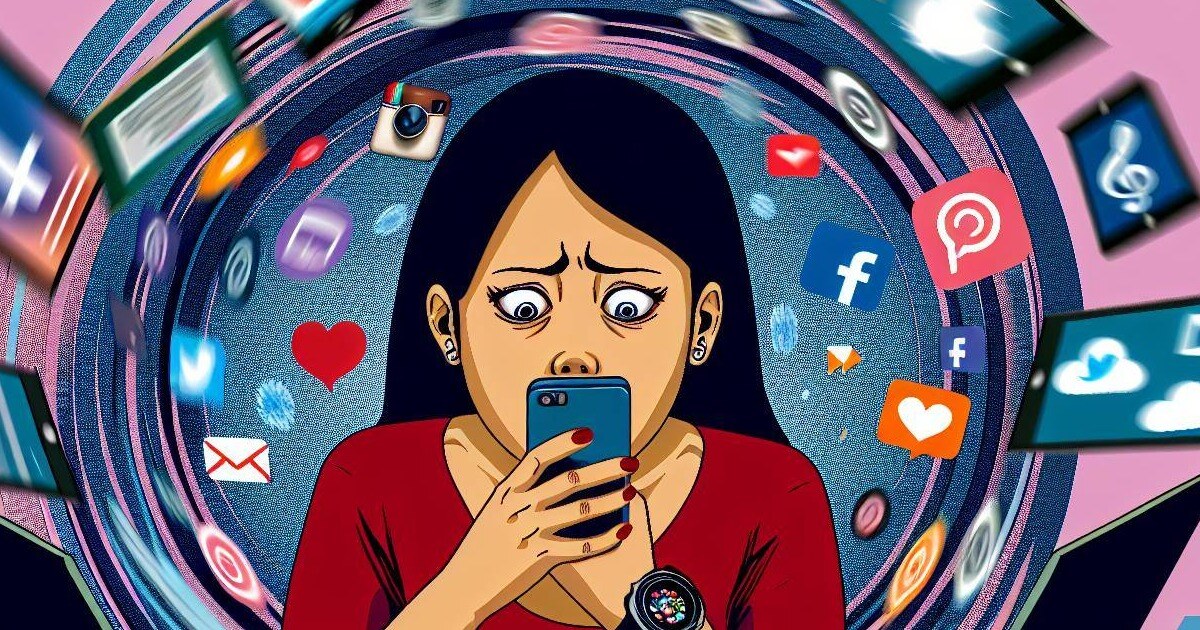Let’s explore technology’s impact on mental health.
Mind Over Media: Navigating Mental Health in the Digital Age
In today’s age, technology is everywhere. It has transformed the way we work, live, and communicate. While technology can bring numerous benefits, it can also pose real challenges, especially to mental health.
This blog will dive into both the positive and negative impacts of digital use on our minds.
The Prevalence of Digital Technology
Digital technology is now an essential part of our daily routines. Almost every person you see daily carries some sort of device with them. They are everywhere, whether it is a cell phone, smartwatch, or tablet. Technology has heavily impacted the way we do everything. With its ability to provide quick communication and distraction, it has become increasingly popular and ever-changing.

Positive Aspects of Digital Technology
Enhanced Connectivity
Digital technology allows us to maintain close relationships with friends and family, regardless of physical distance. Video calls, social media, and instant messaging allow for real-time communication, which can create a sense of community and support.
Access to Resources
The internet provides a large pool of information on health, including symptoms, treatments, and support resources. Online support groups and communities offer a space for individuals to share experiences and find support from others facing similar challenges.
Telehealth Therapy and Mental Health Apps
The rise of telehealth has made mental health services more accessible, especially for those who may not have access to in-person therapy. Mental health apps offer tools for managing stress, breathing techniques, anxiety, and other mental health issues, providing users with support at their fingertips.

Negative Aspects of Digital Technology:
The Age of Social Media
While social media connects us, it can also contribute to feelings of inadequacy and low self-esteem. Social media can often become a place where people find they are constantly comparing themselves and their lives to others and their seemingly perfect lives. This can create feelings of isolation, depression, and anxiety[1].
Screen Time and Cognitive Function
Excessive screen time can impair cognitive function, reduce attention span, and negatively impact productivity. Additionally, the blue light emitted by screens can disrupt sleep patterns[2], negatively affecting mental health.
Digital Addiction
It can be easy to form an addiction to social media and technology[3]. If you’ve heard the term “iPad Kid,” you’ll understand where this comes from. The addictive nature of digital technology can lead to compulsive use, impacting mental health and mood, especially in children. Digital addiction presents itself as a feeling that you must constantly check notifications, browse social media, or play online games, leading to increased stress and anxiety.

Maintaining Mental Well-being in the Digital Age:
Digital Detox and Mindful Usage
Taking regular breaks from screens can greatly improve mental well-being. Set limits for screen time, such as designating technology-free hours or days. This includes doing so for your family, not just yourself. Be mindful by being aware of how much time you actually spend online and making conscious decisions about your digital consumption.
Promoting Healthy Digital Habits
Encourage positive content by following accounts that inspire and uplift you. Use apps and tools to promote mental well-being, such as meditation apps or screen time settings. Limit your exposure to negative content and avoid getting caught up in social media arguments or toxic discussions.
Quit the Comparison
Try to refrain from comparing yourself to others and enjoy what you have right in front of you. Follow people who encourage you, not make you feel lesser than you. It may be easier said than done, but doing so can lessen these feelings of inadequacy. Remember, not everything you see on social media is real and raw. You are enough just as you are.
Building Offline Connections
While digital connections are valuable, face-to-face interactions are crucial for mental health and socializing. Try to make time for in-person activities[4] and participate in hobbies that do not involve screens. Building and maintaining strong offline relationships can provide emotional support. Go outdoors, go to a coffee shop with a friend, enjoy a picnic, or take up a new hobby.
Seeking Professional Help
If digital technology is negatively impacting your mental health, do not hesitate to seek professional help. Therapists and counselors can provide strategies to manage this stress and address any underlying mental health issues.
Digital technology is a double-edged sword. It can be extremely helpful in our day-to-day lives. Still, it can also be detrimental if its impacts are not taken seriously. Being mindful of our digital habits and taking steps to balance online and offline life is crucial. By doing so, we can embrace the positives of technology while preventing its negative impacts. Partaking in a balanced digital life is key to keeping our mental health intact in this age of technology.

Choosing a healthy plant-based and vegan diet is most beneficial when it comes to:

-
Higher levels of energy;
-
Improved sleep;
-
Aids in energy and overall happiness;
-
Provides a sense of comfort and relief;
-
Could prevent major diseases such as obesity and diabetes;
-
Accomplish weight loss and management; and
-
Improves mental and cognitive functioning.
There are really no excuses not to try healthier habits in your everyday life. If you are a man or woman looking for specific benefits of adopting healthier habits or just want to know about the general healing properties of herbs. Please remember to comment, post any health questions, or contact us directly!
Also, feel free to share any of your favorite recipes to make and share it with the Assuaged community on our ➡️ Share A Recipe ⬅️ page!














